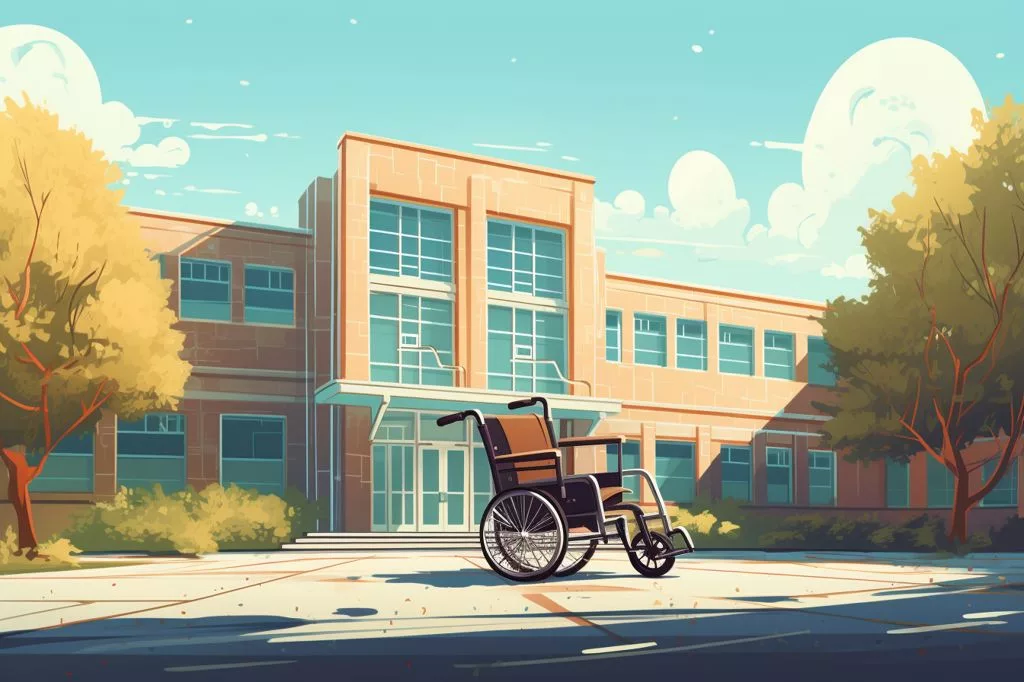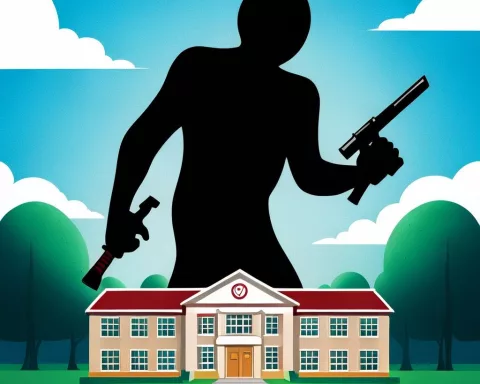The controversy surrounding Heideveld High School’s decision to uninvite a wheelchair-bound former pupil from their matric ball dance highlights the importance of inclusion and effective communication in educational institutions. The incident calls attention to the need for schools to actively engage and support students with disabilities in order to foster a more inclusive learning environment. It also underscores the vital role that clear communication plays in preventing misunderstandings and promoting a positive atmosphere. Ultimately, the story of Chelse Leigh Tiemie serves as a powerful reminder of the value of empathy and acceptance for all.
Heideveld High School’s Matric Ball Controversy
In Cape Town, a recent event involving Heideveld High School has ignited a passionate discussion about the essential roles inclusion and effective communication play in educational institutions. The school, which uninvited a wheelchair-bound former pupil, Chelse Leigh Tiemie, from its matric ball dance, is now under heavy criticism for its actions. This article delves into the details of the matter, analyzing both the personal and institutional implications of the incident.
Seventeen-year-old Chelse would have been a matric student at Heideveld High School this year if it were not for a tragic accident that left her paralyzed. In October 2020, as she and six friends were returning from a local grocery store, a car ran a red light, colliding with Chelse and causing her to land on her head. This devastating event resulted in permanent disabilities and forced her to discontinue her education.
Despite the harrowing circumstances, the Heideveld community continued to embrace Chelse. Nearly three years after the accident, her father, Alrich Willis, shared his initial joy when Chelse was invited to attend the matric ball with her friends as a thoughtful gesture from the school. However, their joy turned to bitter disappointment when the school reversed its decision after the family had made significant preparations for the event.
Reaction, Response, and Responsibility
Outraged by the school’s actions, Willis expressed his frustration on Facebook, questioning the school’s motives and accusing it of insensitivity. “How do you do that to people who have been through so much with their child?” he asked, emphasizing the emotional turmoil that Chelse and her family had faced during her recovery. The school held its extravagant matric ball at the Cape Town Convention Centre, which Chelse did not attend.
Millicent Merton, the Western Cape Education Department’s spokesperson, addressed the controversy, stating that Chelse’s parents had not confirmed their attendance within the specified timeframe. She added that Chelse was included in various activities by the school and that all guests were required to respond to the invitation. Willis, however, maintains that he acknowledged the invitation but never received any follow-up communication from the school.
This unfortunate situation underscores the vital role that clear communication plays in educational institutions, especially in sensitive situations. As the story unfolds, it becomes evident that both parties bear some responsibility for the misunderstanding. The school could have been more diligent in ensuring that Chelse’s family received necessary information and support, while Willis could have followed up more proactively on the invitation.
Broader Implications: Inclusion and Education
The incident also brings attention to the wider issue of inclusion in education. Heideveld High School’s initial invitation to Chelse demonstrated an understanding of the value of social events in fostering camaraderie and a sense of belonging among students. However, their choice to uninvite her raises questions about their commitment to creating an inclusive environment for students with disabilities.
On a larger scale, this case offers valuable insights for educational institutions worldwide. Above all, it underscores the importance of effective communication, particularly when handling delicate matters. By ensuring all parties are kept informed and engaged, schools can prevent misunderstandings and foster a more positive atmosphere.
Moreover, the events at Heideveld High School emphasize the need for promoting inclusion and diversity in education. Actively engaging and supporting students with disabilities can lead to a more inclusive learning environment that benefits all students. Such initiatives not only improve academic experiences but also contribute to the development of empathy, understanding, and mutual respect among learners.
Moving Forward with Empathy and Acceptance
In his Facebook post, Willis voiced his hope that the school would learn from this experience, stating, “I hope you will never do this to another child or family again.” As educational institutions work to create inclusive and nurturing environments for all students, the story of Chelse Leigh Tiemie serves as a poignant reminder of the power of empathetic communication and the value of fostering acceptance for all.
What is the Heideveld High School matric ball incident?
It is a controversy surrounding the school’s decision to uninvite a wheelchair-bound former pupil, Chelse Leigh Tiemie, from their matric ball dance.
What does the incident highlight?
The incident highlights the importance of inclusion and effective communication in educational institutions.
What is the role of schools in fostering an inclusive learning environment?
Schools need to actively engage and support students with disabilities to foster an inclusive learning environment.
Why is communication important in preventing misunderstandings?
Clear communication plays a vital role in preventing misunderstandings and promoting a positive atmosphere in educational institutions.
What are the broader implications of the incident?
The incident brings attention to the wider issue of inclusion in education and highlights the need for promoting inclusion and diversity in education.
What can schools do to prevent similar incidents from happening?
Schools can prevent misunderstandings and foster a more positive atmosphere by ensuring all parties are kept informed and engaged, and by actively engaging and supporting students with disabilities.
What values does the story of Chelse Leigh Tiemie promote?
The story of Chelse Leigh Tiemie serves as a powerful reminder of the value of empathy and acceptance for all.
What can we learn from this experience?
We can learn the power of empathetic communication and the value of fostering acceptance for all.












